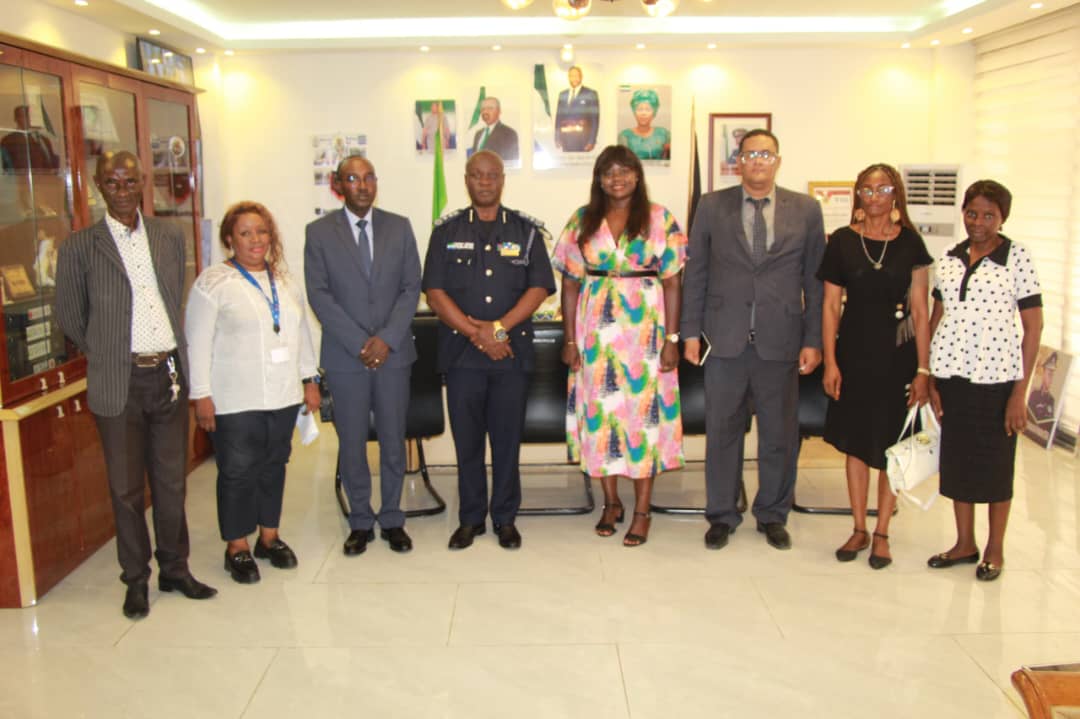A team of experts from the International Police Organization (INTERPOL) visited the Inspector General of Police (IGP) of Sierra Leone, Mr. William Fayia Sellu, to strengthen ongoing collaborations in policing, training, and operational standards.
The delegation, led by Assistant Director Pro Tempore for AFR, Mr. Theos Badege, focused on assessing the National Central Bureau’s (NCB) performance in line with INTERPOL’s standards, with an emphasis on combating environmental crime.
During the visit, Mr. Badege highlighted the importance of working closely with local police leadership. “Even though we engage with the head of the National Central Bureau, the Chief of Police serves as the primary INTERPOL representative in each country,” he noted. He expressed appreciation for IGP Sellu’s cooperation, emphasizing INTERPOL’s global network, which spans 196 member countries.
The agenda for the visit included reviewing Sierra Leonean personnel’s use of INTERPOL’s I-247 system, ensuring compliance with international standards, and evaluating communication effectiveness within the police hierarchy and with global counterparts. Mr. Badege reaffirmed that the goal was to assess the capabilities of those managing the I-247 system and the available facilities.
In response, IGP Sellu welcomed the delegation, acknowledging INTERPOL’s significant investment in Sierra Leone’s law enforcement capabilities, including the establishment of key systems and training programs. “INTERPOL has significantly invested in our capabilities, and we are eager to ensure these facilities are used effectively,” he stated.
The IGP also mentioned recent visits by both himself and the UNDP Resident Representative to monitor operations and expressed satisfaction with the West African Police Information System (WAPIS) program, which is currently operational in the country.
Addressing potential operational challenges, IGP Sellu emphasized the importance of collaboration across various institutions. “If there are any shortcomings in these areas, please inform me so I can engage the heads of these institutions for necessary actions,” he said.
He also highlighted plans to expand police presence to strategic locations, such as border crossings and seaports, to strengthen efforts against illicit activities. “With INTERPOL’s support, we aim to enhance our operational capabilities, particularly at our borders with Guinea, Liberia, and in critical maritime zones,” he added.
In closing, IGP Sellu reaffirmed Sierra Leone’s commitment to continuous training and adapting to new forms of crime, including environmental offenses. He expressed his gratitude for INTERPOL’s ongoing support, recognizing that “training is a daily necessity in policing.”
The meeting concluded with the presentation of an INTERPOL notebook to IGP Sellu in recognition of his exemplary leadership and dedication to fostering international cooperation in law enforcement.












